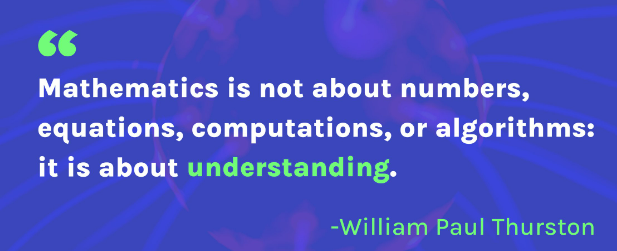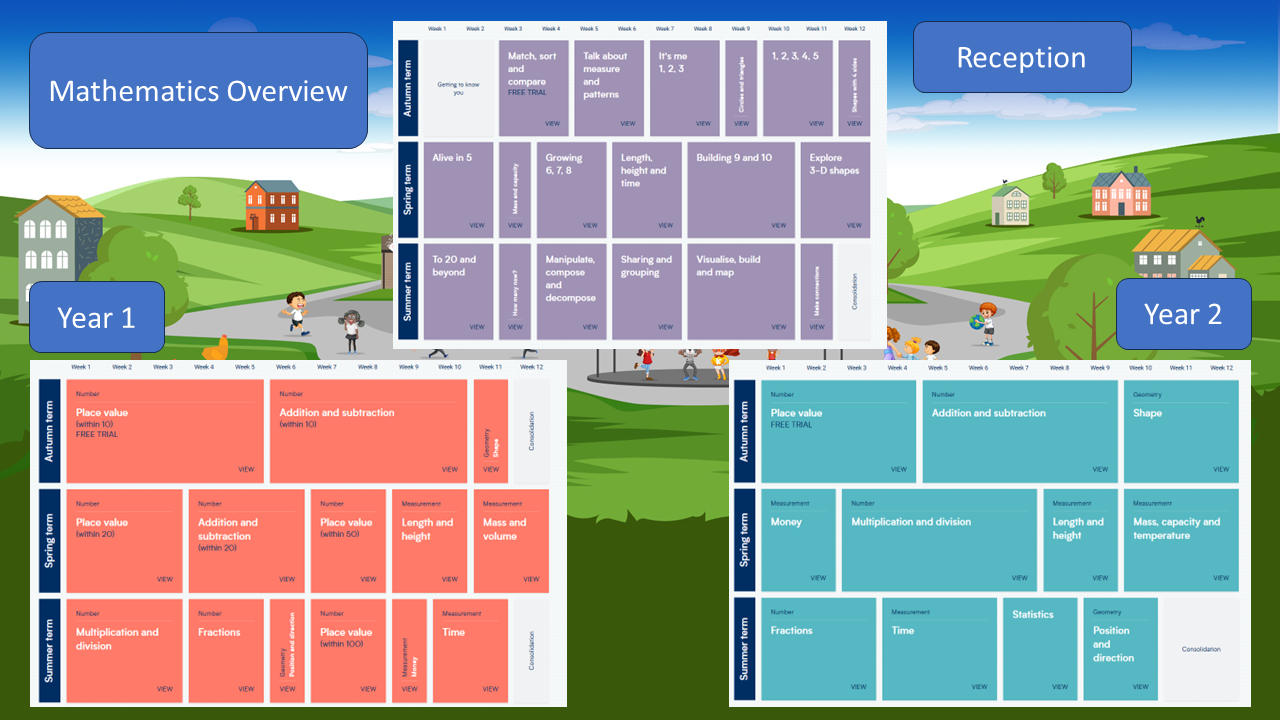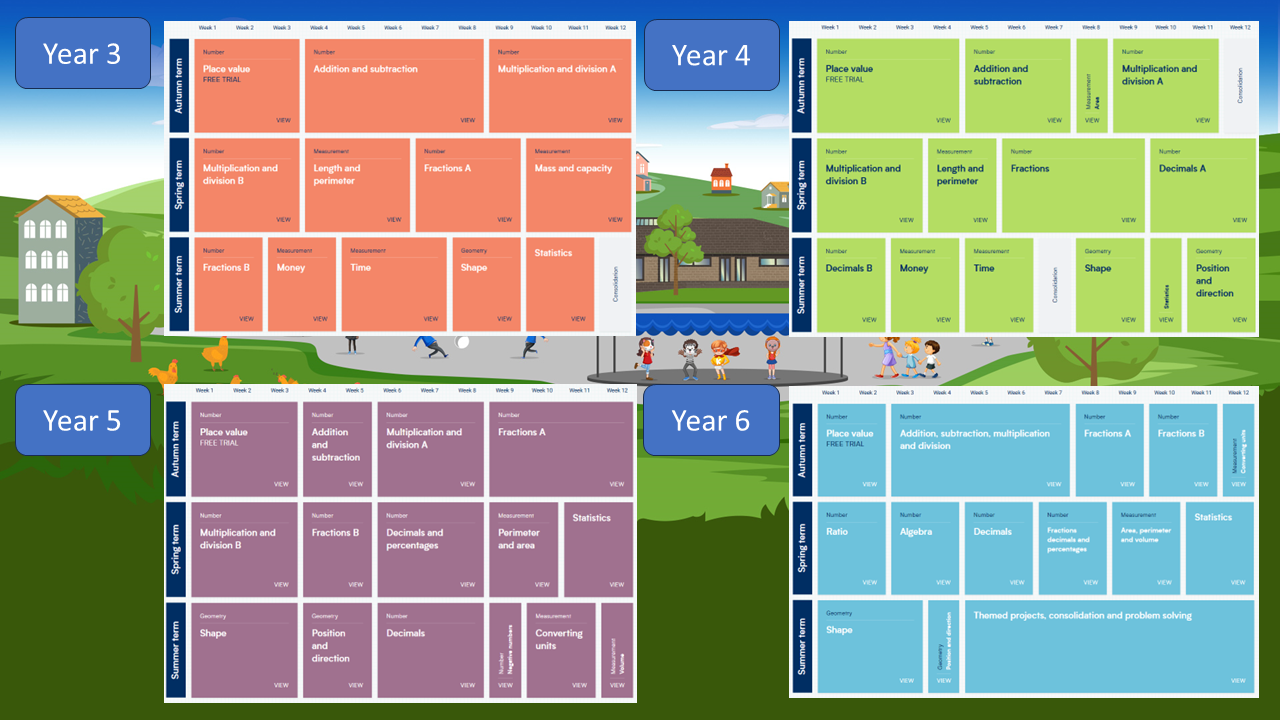Mathematics

Aims
- - Become fluent in the fundamentals of mathematics, including through varied and frequent practice with increasingly complex problems over time, so that pupils develop conceptual understanding and the ability to recall and apply knowledge rapidly and accurately.
- - Reason mathematically by following a line of enquiry, conjecturing relationships and generalisations, and developing an argument, justification or proof using mathematical language.
- - Can solve problems by applying their mathematics to a variety of routine and non-routine problems with increasing sophistication, including breaking down problems into a series of simpler steps and persevering in seeking solutions.
We aim for all children to leave Thomas Reade confident with using Maths in their everyday lives. We believe that everyone can achieve in Maths and that all pupils should experience its awe, wonder and relevance.
Intent
Thomas Reade aims to provide a curriculum that caters for the needs of all individuals. We strive to develop children’s mathematical skill and understanding and ensure that they become confident mathematicians who are not afraid to take risks. We want to develop independent, inquisitive learners who have secure mathematical foundations and an interest in self-improvement. Through a graduated approach we provide challenge for children through high quality activities with a focus on: fluency, reasoning and problem solving. We want our children to gain enjoyment and self-esteem through learning and doing mathematics and pleasure from their ability to use it to solve problems.
Implementation
Mathematics is taught through three key areas of mastery, as set by the National Curriculum so pupils:
- - become fluent in the fundamentals of mathematics, including through varied and frequent practice with increasingly complex problems over time, so that pupils develop conceptual understanding and the ability to recall and apply knowledge rapidly and accurately;
- - reason mathematically by following a line of enquiry, conjecturing relationships and generalisations, and developing an argument, justification or proof using mathematical language;
- - can solve problems by applying their mathematics to a variety of problems with increasing sophistication, including breaking down problems into a series of simpler steps and persevering in seeking solutions.
We teach maths using the ‘I do, we do, you do’ process allowing the children to Explore, Experience and Create within their maths learning.
We believe that our regular times table sessions promote confidence in mathematical fluency along with times table knowledge.
We place great emphasis on reasoning and teaching and using vocabulary to equip children with the tools needed to explain their mathematical thinking.
Our high quality responsive teaching delivers appropriately challenging work for all individuals. Our teachers follow a White Rose programme which is based on The National Curriculum, Thomas Reade Calculation Policy and Development Matters. Teachers and Teaching Assistants are regularly given opportunities to extend their mathematical knowledge and delivery of the curriculum through CPD and Staff Meetings.
We ensure that our children are taught using concrete, pictorial and abstract experiences and are exposed to a range of problem-solving skills including: “Spotting a Pattern”, “Working Systematically”, “Trail & Improvement”, “Visualisation”, “Working Backwards”, “Reasoning Logically” and “Conjecture”. The use of planning resources including White Rose Maths, NCETM (National Centre for Excellence in the Teaching of Maths), NRICH (National Research Institute of Cultural Heritage) and the BBO hub (Buckinghamshire, Berkshire and Oxfordshire).Through revisiting topics, children given opportunities to ensure learning is “baked” into long term memory. We offer Cross Curricular Opportunities which ensure that, when relevant, mathematics will be linked to other areas of the curriculum. We are proud of our whole school Maths days to problem solve and we are heavily involved in the Abingdon Partnership which support with moderation and CPD.
Our lessons include:
- - A range of mathematical resources.
- - Rich questioning using accurate mathematical vocabulary.
- - Elements of Maths Mastery to enrich the curriculum.
- - Continuous monitoring of pupils’ progress against expected attainment for their age.
- - Interventions and personalised learning opportunities for children who need to close the gaps and for children that need challenging.
- - AFL through self and peer assessment.
- - Effective deployment of support staff
Impact
Teachers use formative assessment to monitor which children have grasped the concepts and which need additional support. Identified children are offered Early Bird Maths (concise mathematical activities to complete as children come into the classroom) or small interventions in the classroom. Thomas Reade is part of a pilot scheme for the Maths for Life programme which is aimed at students for whom the standard maths national curriculum structure and timescale is unattainable.
Summative assessment is used termly to gauge progress and results are added to INSIGHT (our in house assessment tracker). All assessments are used to inform planning and for interventions.
KS2 Statutory assessment
Year 6 pupils sit the KS2 statutory Maths paper in May. This includes an arithmetic paper and two reasoning papers. Examples of these can be found on the website link KS2 Maths papers. Prior to this, mock papers are completed in October and February. These enable the children to become familiar with the demands of the test, as well as any access arrangements to which they are entitled. In addition, feedback is planned by the Year 6 staff – whether 1:1, group or whole class – to address areas of development from the mocks, enhancing their usefulness as an exercise which informs teaching, not just producing numerical data.
Our most recent performance data for KS2 can be found here Thomas Reade 2023 data.
Curriculum Overview



